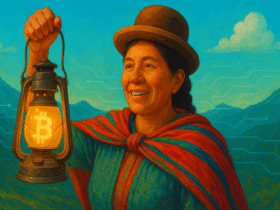Only around 2% of Norwegians use cash, which would make them vulnerable to CBDCs.
The Norwegian government has urged the use of banknotes and coins in commercial premises.
Payments committee advising Norwegian politicians recommends not rushing central bank digital currencies (CBDCs). According to his assessment, there is, to begin with, no clear consensus on whether or not these digital currencies should be used in Norway. The committee’s report recommends, instead, starting by laying the foundations for a regulation that allows its implementation in the future, if so decided.
The committee in question, called Betalingsutvalgetwhich translates as “payment committee,” was appointed by “royal resolution” on May 26, 2023 to investigate how to ensure safe and easy payments for everyone in Norway.
In his report, presented to the Minister of Finance, Trygve Slagsvold Vedum, which describes the eevolution of payment methods in the last 50 years, assures that “at this time and according to the committee’s mandate, there is no basis to make a recommendation on whether central bank digital money (CBDC) should be introduced in Norway or not.”
Above all, they do not see its introduction as necessary for reasons of “financial inclusion, privacy or emergency preparedness.” Although they comment that there should be no rush to insert them, the main task right now would be to “start working on the regulatory changes necessary to facilitate a possible implementation of central bank digital currencies.” This is because the pay committee does not rule out the need for introduce CBDCs in the future.
To be cautious, it is advisable to start working on the regulatory changes necessary to facilitate a possible implementation of central bank digital currencies.
Betalingsutvalget, advisory committee in Norway.
Norway demands physical means of payment
One of the reasons why CBDCs are not a technology to implement immediately is that, they consider, cash (cash) to make payments, due to its fundamental properties, it still has a role to play in the economy, especially for consumers who by decision prefer non-digital or electronic means of payment.
Because they are physical and provide immediate settlement without relying on electronic systems at the time of payment, cash plays a role in the overall preparation for small and medium-sized payments where the payer and beneficiary are physically located. The option to pay in cash is important for those who today do not have access to digital systems, or do not want or cannot pay digitally.
Betalingsutvalget, advisory committee in Norway.
This recommendation to demand cash and expand CBDCs, monetary technology that would possibly come to replace thatl, it would allow citizens to choose and prioritize the most convenient payment methods in terms of anonymity, privacy and convenience.
Likewise, this inclination to respect the right to pay with cash brings echoes of a famous position systematically disseminated by Peter Todd, the Bitcoin developer named by HBO as Satoshi Nakamoto, according to which real bitcoiners use cash.
If you don’t keep using cash, they will take it away from you. It is your civic duty to use cash instead of cards. Bitcoiners who don’t are just playing live RPGs and aren’t willing to do even the bare minimum to ensure we live in a free society.
Peter Todd, Bitcoin developer.
Norwegians are digitalized (and vulnerable)
According to the global media Bloomberg, the use of cash in Norway fell to the lowest level in the world when the COVID-19 pandemic began, in the first quarter of 2020. According to data from a survey carried out by Norges Bank cited by the same medium, Only 2% of those said they had used cash the last time they paid at a physical point of sale.
For this reason, the Norwegian government proposed measures to protect the right to pay with bills and coins in commercial establishments throughout the country.
The trend towards digital payments by the Norwegian population could make them vulnerable to the possible aversive consequences of the centralization of digital money by central banks. As CriptoNoticias reported, these negative consequences could be individual, such as monitoring transactions or blocking funds. Also collective, such as inflation.






Leave a Reply